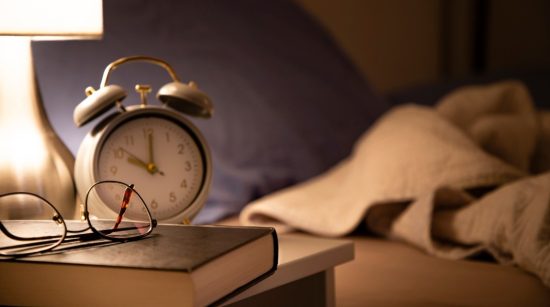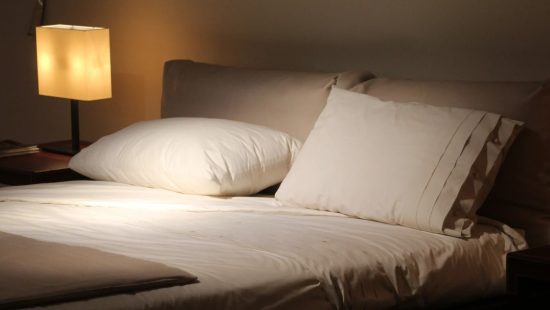Tired of tossing and turning, trying to fall asleep while your mind races at a million miles per hour? We’ve all been there. The struggle to fall asleep fast can leave us feeling exhausted, irritable, and unable to function at our best during the day. But fear not! In this blog post, we’ll explore some tried-and-true techniques that will have you snoozing peacefully in no time.
Say goodbye to counting sheep and hello to a restful night’s sleep! So grab your comfiest pyjamas, and let’s dive into the world of slumber solutions together.
The Health Effects of Not Getting Enough Sleep

- Weakened Immune System: Sleep deprivation can weaken your immune system, making you more prone to infections and illnesses.
- Cognitive Impairments: Lack of sleep affects cognitive functions such as attention, concentration, memory, and decision-making abilities.
- Mood Disturbances: Insufficient sleep can lead to moodiness, irritability, increased stress levels, and a higher risk of developing mental health disorders.
- Increased Risk of Chronic Conditions: Lack of sleep has been linked to an increased risk of obesity, diabetes, heart disease, and hypertension.
- Impaired Physical Performance: Sleep deprivation negatively affects physical performance, coordination, and reaction times and increases the risk of accidents and injuries.
How to Fall Asleep Fast?
1. Stick to a Consistent Sleep Schedule

Maintaining a consistent sleep schedule is paramount for falling asleep quickly. By going to bed and waking up at the same time every day, including weekends, you regulate your body’s internal clock, known as the circadian rhythm. This consistency helps your body anticipate sleep, making it easier to fall asleep promptly and wake up feeling refreshed in the morning.
To adhere to a regular sleep schedule, establish a bedtime that allows for adequate restful hours each night and avoid staying up late or sleeping in excessively. Additionally, incorporating relaxing activities into your evening routine, such as reading or taking a warm bath, can further signal to your body that it’s time to wind down and prepare for sleep.
2. Create a Bedtime Routine

Crafting a bedtime routine can significantly improve your ability to fall asleep quickly. By establishing a series of calming activities before bed, you signal to your body that it’s time to unwind and prepare for sleep. Set a specific time each night to start winding down and engage in relaxing activities like reading a book, practising gentle stretching exercises, or listening to calming music.
It’s essential to avoid stimulating activities close to bedtime and maintain a consistent sleep environment by ensuring your bedroom is cool, dark, and quiet. By incorporating a bedtime routine tailored to your preferences, you can promote relaxation and optimize your chances of falling asleep fast.
3. Avoid Electronic Devices Before Bed

The use of electronic devices before bed can disrupt your sleep by suppressing the production of melatonin, a hormone that regulates your sleep-wake cycle. To promote faster sleep onset, establish a technology-free zone in your bedroom at least an hour before bedtime. Instead of scrolling through your phone or watching TV, engage in relaxing activities such as reading a book or listening to calming music. By avoiding electronic screens and blue light exposure before bed, you can help your body naturally wind down and prepare for restful sleep.
4. The Military Method

The Military Method is a proven technique for falling asleep quickly, even in challenging situations. To practice this method, start by finding a comfortable position and completely relaxing your body. Close your eyes and focus on relaxing each muscle group from head to toe.
Next, practice deep breathing by inhaling for four seconds, holding your breath for seven seconds, and exhaling slowly for eight seconds. Finally, mentally visualize peaceful scenarios, such as lying in a canoe on a calm lake or being tucked into a cosy bed, to quiet your mind and induce sleepiness.
With practice, the Military Method can become an effective tool for promoting faster sleep onset.
5. Try Meditation

Meditation is a powerful technique for calming the mind and promoting relaxation before bed. Choose a calm area and a comfortable spot to sit or lie down. Close your eyes and focus on your breath, inhaling deeply and exhaling slowly. When ideas come to mind, simply acknowledge them without passing judgement and bring your attention back to your breathing.
Incorporate mindfulness meditation or guided visualization techniques specifically designed for sleep relaxation. With regular practice, meditation can help quiet the mind, reduce anxiety, and promote faster sleep onset, leading to improved overall sleep quality.
6. Avoid Caffeine and Stimulants

When aiming to fall asleep quickly, it’s essential to steer clear of caffeine and stimulants that can disrupt your body’s natural sleep cycle. Caffeine, a widely consumed stimulant found in coffee, tea, and chocolate, has the ability to stimulate the central nervous system, which can make it challenging to relax and drift off into a restful slumber.
Similarly, substances like nicotine and alcohol should be avoided before bedtime, as they have been shown to interfere with sleep quality. Instead of reaching for caffeinated beverages or alcoholic drinks, consider opting for herbal teas or decaffeinated options, and practice moderation when it comes to consuming alcohol and nicotine.
7. Exercise Regularly

Engaging in regular physical activity not only benefits your overall health but can also significantly improve the quality of your sleep. Regular exercise helps regulate your body’s internal clock, known as the circadian rhythm, making it easier to establish and maintain a consistent sleep schedule. Furthermore, physical activity triggers the release of endorphins, often referred to as “feel-good” hormones, which can reduce Stress and anxiety – two common culprits of sleep disturbances.
However, it’s important to time your workouts appropriately; avoid vigorous exercise too close to bedtime, as it may increase alertness and make it harder for you to wind down. Instead, aim to incorporate moderate-intensity exercises earlier in the day, allowing your body ample time to relax and prepare for sleep come bedtime.
8. Manage Stress

Chronic Stress can wreak havoc on your sleep patterns, making it essential to find effective strategies for stress management. Deep breathing exercises, meditation, and yoga are all powerful tools for reducing stress levels and promoting relaxation before bedtime. Additionally, regular physical activity has been shown to be an effective stress reliever, helping to alleviate tension and calm the mind.
Finding healthy outlets for Stress, such as engaging in creative hobbies or spending time in nature, can also contribute to better sleep quality. By incorporating stress-reducing activities into your daily routine, you can create a more conducive environment for falling asleep quickly and enjoying restorative sleep.
9. Create a Comfortable Sleep Environment

Optimizing your sleep environment is crucial for promoting faster sleep onset and improving overall sleep quality. Start by ensuring your bedroom is conducive to sleep by maintaining a cool, dark, and quiet atmosphere. Investing in a quality mattress and pillows that provide adequate support and comfort can also make a significant difference in your sleep experience.
Additionally, consider removing clutter and minimizing distractions in your bedroom to create a serene and peaceful environment that promotes relaxation. By prioritizing comfort and tranquillity in your sleep environment, you can set the stage for faster and more restful sleep each night.
10. Limit Daytime Napping

While a short daytime nap can provide a quick energy boost, excessive or lengthy napping during the day can disrupt your nighttime sleep patterns. To promote faster sleep onset and improve overall sleep quality, it’s important to limit daytime napping and avoid napping too close to bedtime. Instead, aim to keep daytime naps brief – ideally around 20 to 30 minutes – to avoid interfering with your natural sleep-wake cycle. If you find yourself feeling drowsy during the day, consider engaging in light physical activity or taking a short walk to help combat fatigue and maintain wakefulness until bedtime.
By limiting daytime napping, you can ensure that your body is adequately prepared for restorative sleep when nighttime rolls around, leading to faster sleep onset and more restful sleep throughout the night.
11. Try Aromatherapy

Aromatherapy, using essential oils to promote relaxation and better sleep, is a popular natural remedy for insomnia. Scents like lavender, chamomile, and valerian have long been used for restful slumber. Add a few drops of oil to a diffuser or mix with a carrier oil for a soothing massage.
Sachets or bedding infused with dried lavender or eucalyptus can also enhance your sleep environment. Experiment with scents to find what works for you, and opt for high-quality oils. Incorporating Aromatherapy into your bedtime routine may help you drift off into dreamland more easily.
12. Use a Comfortable Bed

Your bed’s comfort is pivotal for falling asleep fast. Invest in a quality mattress that supports your body and aligns your spine. Choose pillows suited to your sleeping position for added comfort. Opt for breathable bedding materials like cotton or bamboo to regulate temperature and maintain freshness. Regularly wash sheets to keep them free of allergens and odours.
Arrange pillows strategically to support different parts of your body while sleeping. With a comfortable bed tailored to your needs, you can create a welcoming sleep environment conducive to quicker sleep onset each night.
Conclusion
In conclusion, by following these tips and techniques, you can effectively train your body to fall asleep faster and improve the quality of your sleep. Remember to create a comfortable environment, relax your mind and body, establish a consistent bedtime routine, and avoid factors that disrupt sleep. With patience and practice, you will be able to achieve a good night’s rest in no time. Sweet dreams!
FAQs – How to Fall Asleep Fast?
What are the biggest obstacles to falling asleep fast?
- Stress and anxiety: Racing thoughts and worries can keep your mind active.
- Screen time: Blue light emitted from electronics disrupts sleep hormones.
- Caffeine and alcohol: Stimulants interfere with sleep quality, and alcohol disrupts sleep cycles later.
- Irregular sleep schedule: Going to bed and waking up at inconsistent times confuses your body’s natural sleep-wake rhythm.
- Uncomfortable sleep environment: Too hot, too cold, noisy, or bright surroundings can prevent relaxation.
How Long Does It Take to Fall Asleep Naturally?
It varies! Most adults can fall asleep within 15-20 minutes. However, factors like age, Stress, and individual differences can influence this. Don’t stress if it takes longer; forcing sleep can be counterproductive.
Is Melatonin Safe and Effective?
Melatonin is generally safe for most adults in short-term use, but consult your doctor before starting any new supplement, especially if you have health conditions or take medications. Its effectiveness can vary based on individual needs and underlying sleep issues.
How Long Can a Human Stay Awake?
The world record is 11 days, 25 minutes, and 17 seconds (not recommended!). However, most people experience significant cognitive and physical decline after 48 hours without sleep.
Is 4 Hours of Sleep OK?
For most adults, consistently getting less than 7 hours of sleep can negatively impact health and well-being. Aim for 7-8 hours for optimal functioning. However, individual needs vary, and some people may function relatively well on slightly less sleep. Consult your doctor for personalized advice if you regularly get less than 7 hours and experience negative consequences.

